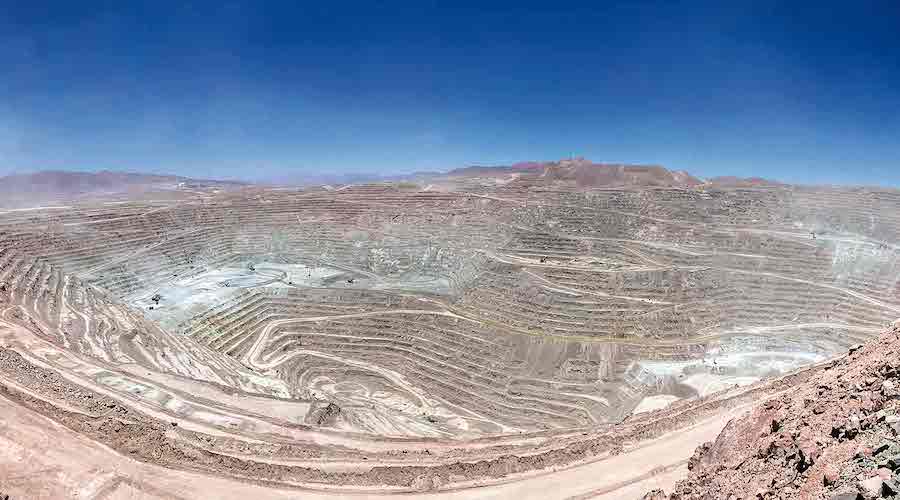
BHP Group announced stricter health protocols on Tuesday after cases of the novel coronavirus at its Escondida copper mine in Chile, the world’s largest, reached 150, with 59 at its smaller Spence deposit.
BHP said 76 of those cases remained active and that the discovery of new cases suggested a “stabilization and tendency toward decline.”
It added: “This is a dynamic situation that can change rapidly, which is why we are making our best effort to implement all measures necessary to protect the health of our workers and contractors.”
A spike in cases in the city of Calama had led BHP to route all workers flying into the mines via nearby Antofagasta airport instead, the company said, and workers were being encouraged to observe stricter social-distancing measures during trips.
BHP is one of a number of major miners operating in Chile to have upgraded safety measures in recent weeks as the world’s No. 1 copper producer reaches the peak of coronavirus cases and deaths, and hospitals fill up.
Last week, state-owned copper miner Codelco, the world’s biggest, announced a strengthening of safety measures including a 14-day-on, 14-day-off shift schedule and the suspension of some construction projects after two workers died from covid-19. Labor unions rejected the measures as insufficient.
Chile in May declared its copper industry among the least affected by the pandemic globally, with a drop of just 1% in output. But the recent changes have sparked speculation among analysts about a potential decline in output.
The government had announced lockdowns for the mines-heavy Antofagasta Region to begin on Tuesday.
Chilean Mining Minister Baldo Prokurica on Tuesday underlined the need to strike a balance between protecting mine workers from the coronavirus and keeping the country’s economic engine running.
Prokurica said the “indispensable” mining sector had frozen the operations of about half its workforce through measures such as remote working, shift changes and suspension of projects, and tightened health protocols in response to the outbreak of the virus in Chile in March.
But the mining industry needs to keep operating, he said, if the government is to sustain emergency social support packages to address economic fallout from the pandemic.
(By Aislinn Laing; Editing by Tom Brown and Peter Cooney)
Comments